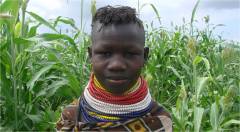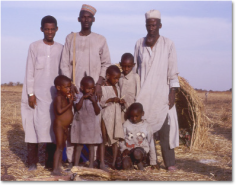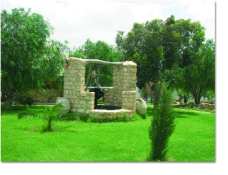 “Transforming Agricultural Research for Development (AR4D) system for global impact”, this is the mission of GCARD to meet the global challenges of food security, poverty, global climate change and many others new challenges emerging in agriculture.
“Transforming Agricultural Research for Development (AR4D) system for global impact”, this is the mission of GCARD to meet the global challenges of food security, poverty, global climate change and many others new challenges emerging in agriculture.
Beginning in 2010, the First Global Conference on Agricultural Research for Development (GCARD1) elaborated the CGARD Roadmap which identifies the priorities challenges facing Agricultural Research for Development (AR4D) and required changes in agricultural research and innovation system to impact the smallholders. Declined in different levels, the AR4D challenges at regional level include:
- The difficulties encountered in integrating actions at regional level, due to the complexity of social, cultural, political and environmental factors among nations.
- Under-resourced regional organizations and networks, with limited ownership and involvement across the range of national AR4D stakeholders
- A lack of wider international political commitment to support regionally-organized actions and development organizations and to share technological innovations
Yet, there are many opportunities to meet theses constraints at regional level
- Integrated regional policies to improve collective actions, such as the CAADP process in Africa
- Value of multi-stakeholder Regional Fora in facilitating actions for development along the agriculture, food and nutrition value chain
- Collective actions addressing shared challenges on a larger scale (e.g. international research for development programmes).
Three key approaches
The Second Global Conference on Agricultural Research for Development (GCARD2) will discuss about a transformation process based on three priority areas of action for making the reforms defined in the roadmap.
- Foresight for impact : forward-looking, anticipatory research and analysis integrating a range of perspectives on key issues, making use of the best available data and interpretations from different sources and directly integrating the diverse views of farmers and other stakeholders on specific problems, so that important issues are examined through multiple lenses
- Partnerships for impact: collaborative action for transforming and strengthening AR4D systems globally, in which all stakeholders have vital roles to play.
- Capacity for impact: Developing of the required human and institutional capacities for generation, access and effective use of agricultural knowledge in development
To set up this process of the GCARD want to focus on existing opportunities and stakeholders at national, regional and international level. In Africa, CILSS is a great and historical experience to be operated for regional foresight, partnership and capacity development
How CILSS activities and mandate align with GCARD process
CILSS overview
 In the wake of severe and protracted drought in the early 1970s and the extensive loss of life and livestock in the West African Sahel, a new intergovernmental body, the Permanent Inter-state Committee for Drought Control in the Sahel (CILSS), was created in 1973. The mission of the institution was to build new coordinating capacity to confront the deleterious effects of drought and desertification and to bolster the food security status in the Sahelian region
In the wake of severe and protracted drought in the early 1970s and the extensive loss of life and livestock in the West African Sahel, a new intergovernmental body, the Permanent Inter-state Committee for Drought Control in the Sahel (CILSS), was created in 1973. The mission of the institution was to build new coordinating capacity to confront the deleterious effects of drought and desertification and to bolster the food security status in the Sahelian region
Headquartered in Ouagadougou as the Executive Secretariat, CILSS established two technical arms soon after its creation: (1) the AGRHYMET Regional Center as a regional center of excellence in agro-meteorological and hydrological research and training, and (2) the Sahel Institute (INSAH) as an applied research unit engaged in policy formulation and analysis on agricultural development, food security, and natural resource management.
However, the Executive Secretariat serves primarily as the political and coordinating body that provides administrative and fiscal oversight of the two other technical research centers.1973. The mission of the institution was to build new coordinating capacity to confront the deleterious effects of drought and desertification and to bolster the food security status in the Sahel region
CILSS activities
With its CILSS mandate “. . . to ensure food security and to combat the effects of drought and desertification for a new ecological balance”, CILSS structured its operational efforts around three core domains: (1) food security, desertification control and population, (2) access to markets and (3) water management and control in the Sahel and West Africa. It ensures a wide variety of services and activities through the following main axes:
- Regional strategies and policy formulation,

- Coordination and harmonization of regional institutional reforms
- Support for policies and program implementation
- Data collection, analysis and dissemination on food security and natural resource management
- Strengthening of scientific and technical cooperation
- Capacity building of various stakeholders (states, civil society, private sector, universities, etc.)
- Capitalization and dissemination of experiences and knowledge
Within these broad axes, several areas of thematic orientation have taken on progressively greater importance within the institution. These include:
- Policy advocacy for more efficient trade and harmonization of regional markets,
- A reformulation of food security policy that identifies and acknowledges the essential role of nutrition as a key component of more complex and sophisticated modeling of famine early warning systems, and
- The elaboration of new analyses and impacts of climate change vulnerability and adaptation as a critical intervening variable to be incorporated within future policy instruments and guidelines to be articulated for the Sahel region.
CILSS as lead agency for agricultural reforms and policies implementing in Africa
CILSS positioned itself as a leading regional actor with a new constellation of bilateral and multilateral partners, and more multifaceted program interventions. CILSS is being called upon to work closely with Economic Community of West African States (ECOWAS) at a regional scale in support of the ECOWAS Agricultural Policy (ECOWAP) and Regional Agricultural Investment Plan (RAIP). Thus, it has embarked on a new long-term mission with a strategic plan (vision 2020) which aims to bring about a gradual consolidation with ECOWAS in which CILSS will serve as the technical implementing agency on matters relating to food security, land and management, expanding its mandate from 13 countries to 17.
 In 2007, CILSS was designated by NEPAD as a regional center of excellence and invited to assist with the implementation of the Pillar 1 (Natural Resource and water management) and the Pillar 3 (Food security and hunger) of CAADP process. On a continental scale, CILSS now serves as a lead agency in the implementation of the CAADP and is working in partnership with the University of Zambia under Pillar 1, and the University of Kwazulu Natal under Pillar 3.
In 2007, CILSS was designated by NEPAD as a regional center of excellence and invited to assist with the implementation of the Pillar 1 (Natural Resource and water management) and the Pillar 3 (Food security and hunger) of CAADP process. On a continental scale, CILSS now serves as a lead agency in the implementation of the CAADP and is working in partnership with the University of Zambia under Pillar 1, and the University of Kwazulu Natal under Pillar 3.
CILSS ensure also leading position in many others regional initiatives for food security and agricultural development such as the Great Green Wall initiative and the programme of Re-greening of the Sahel.
CILSS actions in regional foresight in AR4D
CILSS is the alone regional institution which focuses on a foresight approach in the field of agricultural research for development. At an international level, CILSS created and currently orchestrates the Food Crisis Prevention Network (FCPN) which is a broad operational forum for discussion and exchange on food security issues, facilitating decision-making to better prevent and manage food crises. Stakeholders hold meetings to review the overall food and agriculture situation of Sahel countries and contribute to information systems, charters, and instruments to support food security.
At the sub-regional level, CILSS monitors weather data to detect and alert climate risks and their impacts on food production and food security at an early stage. CILSS analyses and follows food market flows at regional level through food security data, and provides relevant information for anticipating food price spikes and planning interventions as a result of regional consultative meetings that take place throughout the year. Thus, CILSS plays the watchfulness role in the fields of climate and food crises in the Sahel and West Africa and helps the governments and international institutions to predict food crises.
CILSS as dialogue tool between governments and others AR4D stakeholders
 CILSS is the alone regional, public and independent institution which keeps strong relations with civil society, farmers, private and public research and training institutions involving in agricultural development in Africa. Due to its status, CILSS plays the role of intermediary and facilitator between the governments and the farmers, researchers and civil society in the framework of political commitments and institutional reforms in agricultural research for development in the Sahel and West Africa.
CILSS is the alone regional, public and independent institution which keeps strong relations with civil society, farmers, private and public research and training institutions involving in agricultural development in Africa. Due to its status, CILSS plays the role of intermediary and facilitator between the governments and the farmers, researchers and civil society in the framework of political commitments and institutional reforms in agricultural research for development in the Sahel and West Africa.
CILSS and GCARD process
CILSS holds a relevant regional leadership and experience in foresight, partnership and capacity development will be very useful in the process of GCARD and the transforming of agricultural research for development in Africa
Blogpost by Rivaldo Kpadonou, one of the GCARD social reporters


